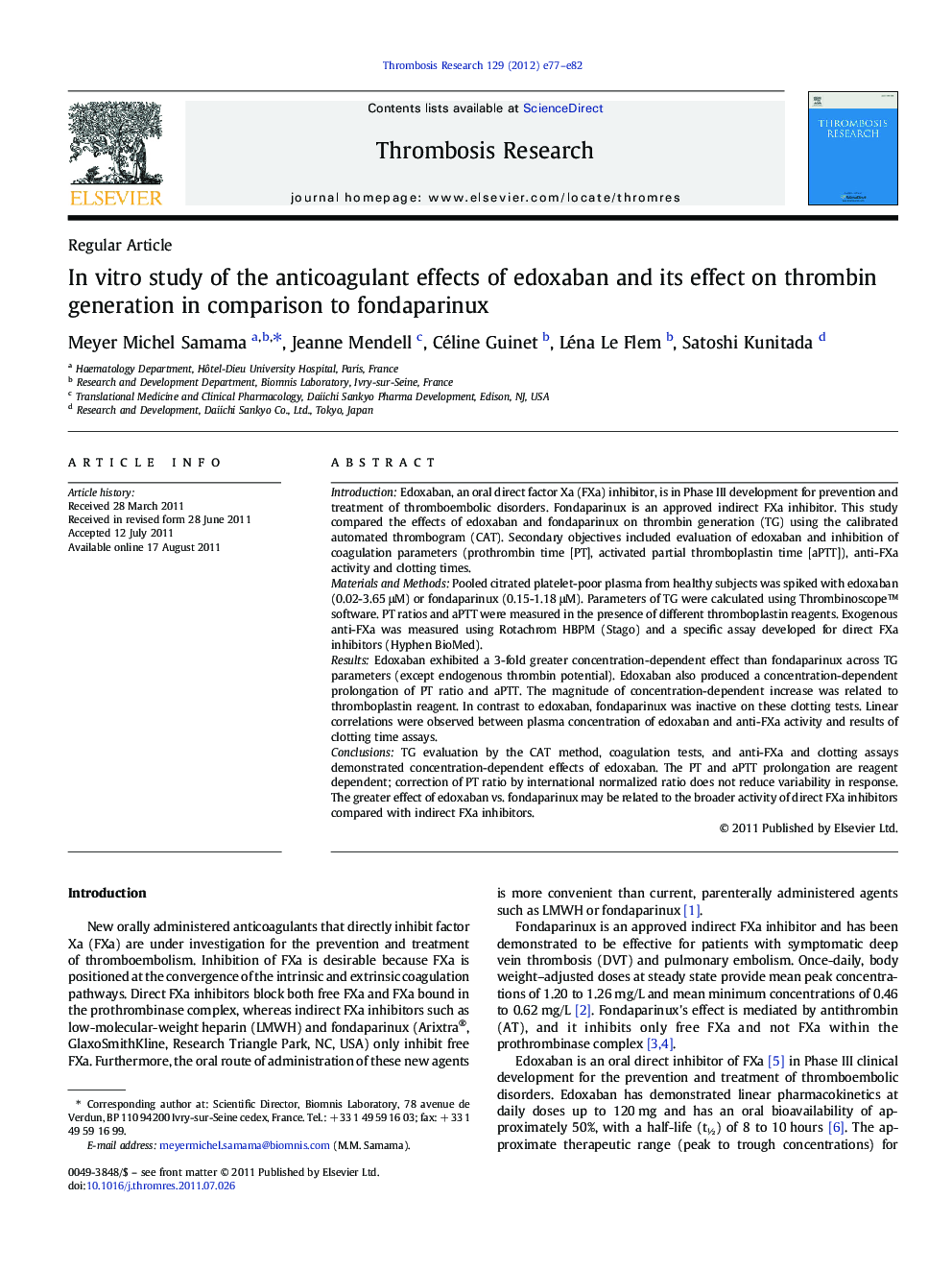| Article ID | Journal | Published Year | Pages | File Type |
|---|---|---|---|---|
| 6003207 | Thrombosis Research | 2012 | 6 Pages |
IntroductionEdoxaban, an oral direct factor Xa (FXa) inhibitor, is in Phase III development for prevention and treatment of thromboembolic disorders. Fondaparinux is an approved indirect FXa inhibitor. This study compared the effects of edoxaban and fondaparinux on thrombin generation (TG) using the calibrated automated thrombogram (CAT). Secondary objectives included evaluation of edoxaban and inhibition of coagulation parameters (prothrombin time [PT], activated partial thromboplastin time [aPTT]), anti-FXa activity and clotting times.Materials and MethodsPooled citrated platelet-poor plasma from healthy subjects was spiked with edoxaban (0.02-3.65 μM) or fondaparinux (0.15-1.18 μM). Parameters of TG were calculated using Thrombinoscope⢠software. PT ratios and aPTT were measured in the presence of different thromboplastin reagents. Exogenous anti-FXa was measured using Rotachrom HBPM (Stago) and a specific assay developed for direct FXa inhibitors (Hyphen BioMed).ResultsEdoxaban exhibited a 3-fold greater concentration-dependent effect than fondaparinux across TG parameters (except endogenous thrombin potential). Edoxaban also produced a concentration-dependent prolongation of PT ratio and aPTT. The magnitude of concentration-dependent increase was related to thromboplastin reagent. In contrast to edoxaban, fondaparinux was inactive on these clotting tests. Linear correlations were observed between plasma concentration of edoxaban and anti-FXa activity and results of clotting time assays.ConclusionsTG evaluation by the CAT method, coagulation tests, and anti-FXa and clotting assays demonstrated concentration-dependent effects of edoxaban. The PT and aPTT prolongation are reagent dependent; correction of PT ratio by international normalized ratio does not reduce variability in response. The greater effect of edoxaban vs. fondaparinux may be related to the broader activity of direct FXa inhibitors compared with indirect FXa inhibitors.
